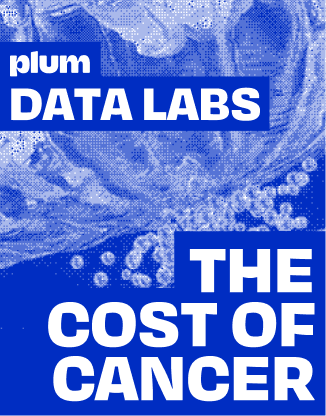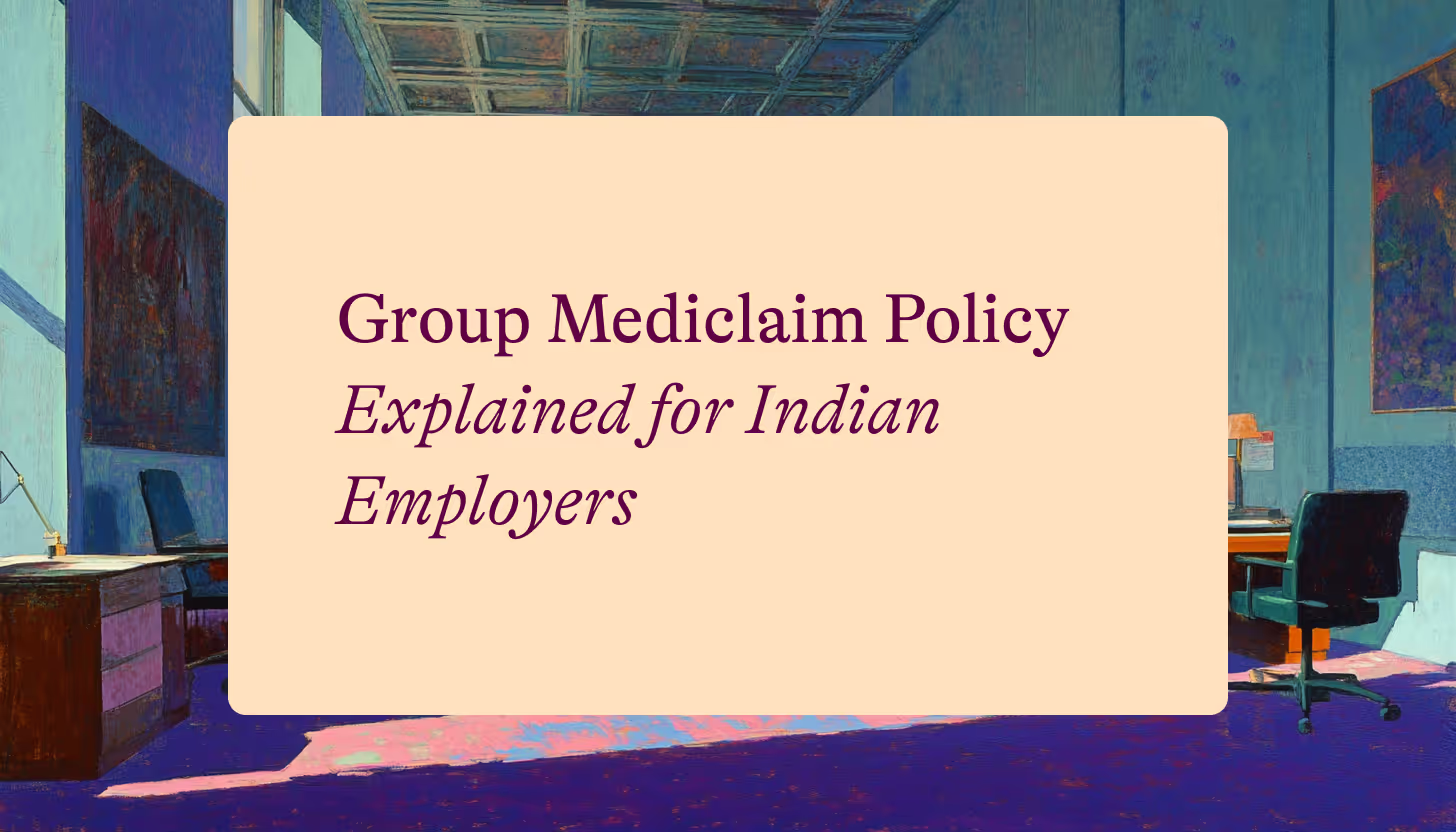Are you currently insured under employee state insurance (ESI)? If so, good for you! But if you're wondering whether or not it's time to shift to group health insurance, read to learn more about the primary advantages of each and the reasons why many people prefer shifting from ESI to group health insurance.
First, let's look at what ESI is and what it offers its members. Then we'll discuss the differences between ESI and GHI and the pros and cons of each. At the end of this article, you'll better understand whether or not group health insurance is right for you and your family. So let's get started!
Difference between ESIC and group health insurance
Everyone's health insurance needs are different, so it's essential to seek the right option for you. ESIC (Employees' State Insurance Corporation) is a group insurance option requiring employees to contribute to their health coverage. It comes under the Employees' State Insurance Act, 1948 - directly under the Ministry of Labour and Employment, Government of India.
Private/public companies (organisations, businesses, factories, manufacturers) employing ten-plus workers are required to register for ESIC.
The following ESIC benefits are provided to the worker and their dependents.
- Medical expenses
- Maternity costs
- Sickness paid leave
- Unemployment cover, loss of salary
- Funeral and confinement costs
- Old age care
- Physical and vocational rehabilitation

Any employee earning less than INR 21,500 per month and INR 25,000 per month (for handicapped cases) will be entitled to the ESIC scheme in Inda. ESIC will not cover workers earning more than INR 25,000 per month.
The main difference between ESI and Group Health Insurance is that with ESI, employees are automatically covered for medical expenses while on the job. With Group Health Insurance, employees must be enrolled in order to receive benefits - at times; this can be costly and time-consuming. The employer wholly sponsors GHI/GMC with no cost to the wages of the employee.
If you're looking for a health plan offering more coverage than ESI, or want to be insured while you're not working, then Group Health Insurance may be the right option.
{{group-insurance-quote="/web-library/components"}}
Why must one shift from ESIC to group health insurance?
Private/public companies' salaried employees should shift to group health insurance if they want the same level of benefits and protection as under ESIC. The Employees' State Insurance Corporation (ESIC) is a self-funded plus employer contribution social security scheme for government employees in India.
Suppose an employee does not want or cannot switch cover to group health insurance. In that case, they can continue with ESI until notified by their company that it will discontinue coverage at a specific date in future.
Free employee medical cover
Healthcare is essential for employees and their families - ensuring you have enough coverage can protect them financially if something happens unexpectedly. At the same time, they're not covered by insurance or when they need medical attention outside of insured hours or networks (i.e., during sickness). Group health insurance through your employer provides greater benefits and protection than individual premiums offer on their own at no cost to CTC.
Good and comprehensive coverage
Regarding group health insurance, there are some compelling reasons ESIC is not the best option for businesses. In fact, in most cases, group health insurance provides better benefits and lower premiums than ESIC. Moreover, employers who provide healthcare coverage for their employees can find it more affordable with group health insurance policies. This way, employer-employees don't have to bear the burden of medical expenses on their own and can save money on premiums yearly.
Online tracking and claims facility
With modern GMC insurance, you can track, file, enrol, reimburse, speak to a doctor, book a hospital bed, download health cards, and intimate claims online and on mobile. ESIC is physically dependent on the government advisor to facilitate the processes mentioned above.
It is important to be organised and take care of all the paperwork before starting the process of shifting from employee health insurance (ESI) to group health insurance. This will make sure everything goes smoothly and there are no delays or issues during the transition period.
You need to adhere to a few critical steps while undergoing this policy change - Evaluation, Selection, and Negotiation. Make sure you stay calm throughout, as any mistakes could lead to costly delays or even termination of your policy.
ESI or group health insurance?
With the new health care circular in place by IRDAI, employers must provide health coverage for their employees by April 16, 2020. If you are an employee who does not have employer-sponsored health insurance, you may be eligible for ESI (Employee Self-Insurance). ESI should only be used as a last resort and should not be your only option for healthcare coverage.
If you're still unsure regarding which option is suitable for your company, speak to an expert to get more information. Happy shopping!
{{group-insurance-quote="/web-library/components"}}
Frequently Asked Questions
Are there any downsides to switching to group health insurance?
There are a few downsides to switching to group health insurance. For example, people with pre-existing conditions may find it challenging to get coverage under group health insurance due to a waiting period.
Additionally, group health insurance can be costly for people who are not eligible or don't meet the eligibility requirements. Group health insurance also comes with its own set of benefits and drawbacks. One disadvantage is that group health insurance doesn't cover all medical expenses in the case of PEDs.
It's important to research different types of group health insurance plans in order to find one that fits your needs and budget. Overall, group health insurance is an important way to protect yourself and your family from expensive medical bils/hospital treatment in case of a medical emergency.
What are some of the benefits of switching to group health insurance?
There are many benefits to switching to group health insurance, including lower premiums and more coverage options. Group plans are known for having lower premiums than single-person policies and offer more coverage options, such as maternity care and hospitalisation.
Furthermore, group health insurance can save you a lot of money in the long run because it can pool together all of your family's medical needs into one policy. Plus, group health insurance allows you and your family to be covered under one policy, which can be a huge security blanket.
How can I ensure I get the best rates on group health insurance?
One way to ensure you're getting the best rates on group health insurance is by doing research. You can compare rates by state or region and look for companies with good ratings (CSR and ICR). Another way to save on group health insurance is by finding the right plan for your needs and budget. You may be able to find a plan that fits your needs and budget if you are aware of the limitations of each type of coverage you're looking into.
When shopping for group health insurance, make sure to look for companies that have good ratings. This will help you in knowing that you're a good investment and you'll benefit in the long run.
Conclusion
In the modern workplace, group health insurance is becoming an increasingly popular choice for employers. This is due to the better benefits that group health insurance offers, such as affordable premiums, coverage for family members, and various other benefits. However, before you make the switch, it is essential to understand the differences between employee state insurance (ESI) and group health insurance.
Once you understand these two types of insurance, it will be much easier to decide which one is best for your business. So stay tuned for more helpful insights on the benefits of group health insurance in the coming weeks!
{{group-insurance-quote="/web-library/components"}}
FAQ
Q. How does the coverage for pre-existing conditions compare between ESI and group health insurance plans?
A. ESI typically covers pre-existing conditions without a waiting period, making it advantageous for employees with such conditions. In contrast, group health insurance plans often have a waiting period before covering pre-existing conditions. This difference is crucial for employees considering a switch, as ESI provides immediate coverage for chronic illnesses, while group health insurance may offer broader benefits after the waiting period.
Q. What specific steps should a company follow to transition from ESI to group health insurance without disrupting employees' coverage?
A. To ensure a seamless transition from ESI to group health insurance, a company should first consult with an insurance broker to understand the requirements and options. Next, it should communicate the change to employees, explaining the benefits and any actions they need to take. The company must also coordinate with the insurance provider to set up the new policy and ensure there are no gaps in coverage. Finally, offering training sessions or resources to employees about how to use the new insurance can ease the transition and address any concerns.
Q. Can employees opt back into ESI after transitioning to a group health insurance plan if they find the latter unsatisfactory?
A. Reverting back to ESI from a group health insurance plan is not typically straightforward due to ESI's eligibility criteria based on salary and the employer's obligations. If an employee's salary exceeds the ESI threshold or the employer has fully transitioned to a group health insurance scheme, returning to ESI might not be feasible. However, if circumstances change and the company decides to reintegrate with ESI, employees could potentially opt back in, provided they meet the eligibility criteria again. It's essential for both employers and employees to carefully consider the implications and benefits of each scheme before making a switch.
.avif)










.avif)














